Painting cabinets may seem like an easy DIY project for those who enjoy working with their hands and love a challenge. However, it takes a lot of work and skill to get the job done right.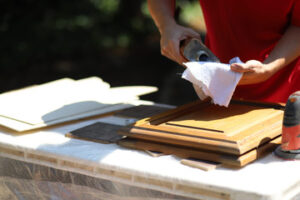
For example, painters must properly prep surfaces by cleaning them with degreasers or denatured alcohol and sanding lightly with different grits. This is essential to ensure good adhesion and smooth application of paint layers. Contact Modesto Cabinet Painters for professional help.
Cabinet painting is an art form that takes years to perfect. It requires a combination of skill and the right equipment. A seasoned professional knows how to prepare the surface, apply multiple coats, and get into tight corners for a clean and even finish. In contrast, homeowners who attempt this project can find themselves with unsatisfactory results. They may also be faced with costly repairs when mistakes are discovered after the job is completed.
The best way to evaluate a potential cabinet painter is by reviewing customer references. Look for reviews that describe the quality of their work, as well as how satisfied the client was with the final result. In addition, ask for a cost estimate and project timeline before hiring someone to repaint your cabinets.
Another factor to consider when evaluating cabinet painters is their work ethic. A reputable contractor will be punctual and will communicate clearly about their process. In addition, they will ensure that all necessary prep work is complete before starting the painting. This will include removing cabinet doors, scraping the surfaces, sanding, and adding a primer coat. This will allow the finish coats to adhere properly for a long-lasting, durable result.
Lastly, you should choose a cabinet painter who offers warranties on their work. This will provide peace of mind in case something goes wrong after the job is complete. Look for contractors that offer a one-year warranty and describe what will be covered under this policy. Then, you can feel confident that you’ve chosen the right cabinet painter for your project.
Time-Saving
If you’re looking to give your kitchen a fresh new look in a short amount of time, hiring cabinet painting professionals is the way to go. They will take care of all the details for you, so your project will be completed quickly and efficiently without any hassles. They also know how to minimize the impact of a renovation on your everyday life, which can save you a lot of stress.
DIYers can feel like they’re saving money by taking on this ambitious task themselves, but the truth is that doing so may end up costing them more in the long run. Many homeowners who try to paint their cabinets experience setbacks that can cause delays and lead to subpar results. Hiring a professional can prevent these problems from occurring and ensure the job is done correctly the first time around.
Proper surface preparation is essential to a successful paint job. This includes thorough cleaning, degreasing, and sanding to create an even texture for paint adhesion. Skipping this step can lead to subpar results that will require corrections and increase the overall project time. Professionals understand the importance of proper prep and have the knowledge and equipment needed to get the job done right the first time.
Some professional painters also offer warranties or guarantees on their work, which can provide additional peace of mind. This is an excellent way to gauge a contractor’s commitment to quality work and customer satisfaction. When choosing a contractor, ask about the length of their warranties and what they cover. This will help you determine if they’re worth hiring for your next cabinet painting project.
Peace of Mind
Professional cabinet painters will complete the work with minimal disruption to your daily life. They will take the time to protect your appliances and floors, scrub and sand all surfaces, and use a fine spray painter to ensure a smooth, durable finish that will stand up to the elements.
They will also work with low-VOC paints, which produce fewer harmful fumes during the painting process. This is not only better for your health but is an eco-friendly choice as well. Choosing to update your cabinets with a fresh coat of paint is a great way to reduce the amount of waste that ends up in landfills.
Cabinet painting is a complex project that requires significant time, attention to detail, and specialized skills. Without the right tools and knowledge, it can be a costly endeavor that will result in poor quality and unsightly results. Hiring professional painters eliminates the risk of costly mistakes, saving you time and money in the long run.
A well-executed cabinet painting job can dramatically enhance the ambiance and elevate your home’s aesthetic. It can create a clean, sophisticated, and modern space that perfectly reflects your style preferences or a warm and welcoming atmosphere that appeals to potential buyers.
The peace of mind that comes with having Cabinet Painters around is invaluable. They provide expert craftsmanship and superior service that will enhance your kitchen’s aesthetic, increase your home’s value, and provide years of enjoyment. Whether you are looking to update your current kitchen or plan to sell your home in the future, hiring professionals is an investment that will pay off. To get started, request a free cabinet painting estimate today.
Aesthetics
Professional cabinet painters offer a specialized set of skills that elevate your interior spaces to an entirely new level. They’re adept at applying a fresh coat of paint to enhance the overall aesthetic of your home, while also ensuring that the new finish will withstand years of use. They go beyond simply wielding a brush, working diligently to remove hardware and masking off areas that don’t need to be painted, sanding surfaces for optimal adhesion, and degreasing surfaces before the application of any primer or paint products. This detailed approach lays the foundation for long-lasting beauty, and avoids shortcuts that can result in costly problems down the road.
With a wide range of customization options, they can help you achieve the look that reflects your personality and complements your living space. From neutral tones that appeal to a broad audience to vibrant hues that echo the natural beauty of Arizona’s desert landscape, cabinet painting allows you to create a personalized aesthetic that suits your tastes and aligns with the unique style of your home.
While house painters are skilled at large-scale painting, they often lack the specialized tools and expertise needed for the tight, high-wear spaces of cabinets. Cabinet painters are uniquely positioned to understand the nuances of these tight, high-wear spaces, and they utilize tools and techniques that are optimized for this type of work. This ensures a smooth, streak-free finish that withstands years of wear and tear. A quality paint job can dramatically improve your kitchen’s visual appeal and significantly increase the resale value of your home. In fact, some estimates show that investing in a quality cabinet painting project can provide an 80% return on investment.
Value
Having well-painted cabinets is a major selling point for homes and can increase their value by up to $2,000 to $10,000. Cabinet painters can do this for a fraction of the cost of a full kitchen renovation, with much less disruption to everyday life. However, this is only true if the job is done correctly. Hiring a professional is essential for getting the results you want and ensuring your finish will last.
This is because cabinet painting requires thorough preparation and the use of specialized paints that can withstand moisture and wear-and-tear. DIYers often lack this knowledge, which can lead to chipping and peeling after a short period of time. Professionals know the right steps to take, and they also use fine spray painters that can get a smooth, flawless finish that will look good for years.
In addition, professional painters have access to specialty products that are not available at home improvement or paint stores. This includes oil-based primers that penetrate into the wood and help to seal in stains, knots, and nail holes. They can also apply a coat of semi-gloss that is easy to clean and has a high resistance to stains, scratches, and chipping.
While hiring a professional cabinet painter can be expensive, it’s worth the investment in the long run. It’s important to shop around and get multiple quotes from different services before choosing the best one for your project. Make sure the quotes include all aspects of the work, including prep work, painting, and finishing touches. Additionally, ask if the company offers a guarantee or warranty on their work. This will give you peace of mind that your cabinet painting project will be completed to the highest standards and won’t leave you with any costly errors in the future.

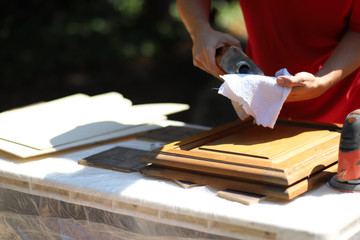
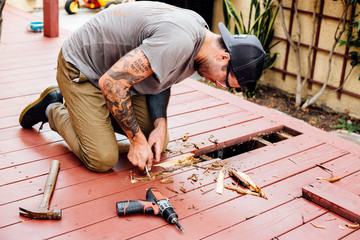
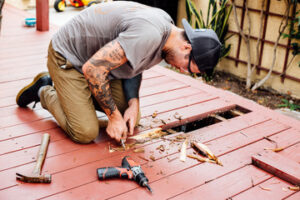
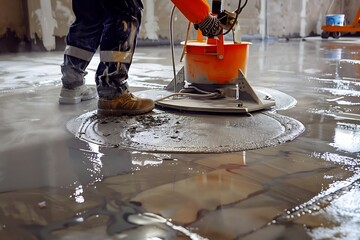
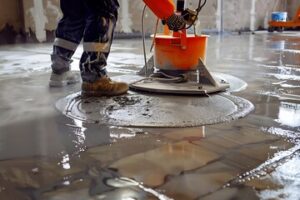
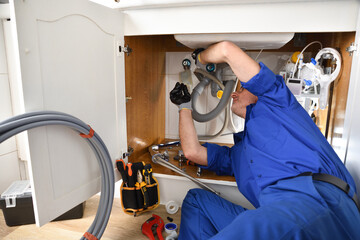
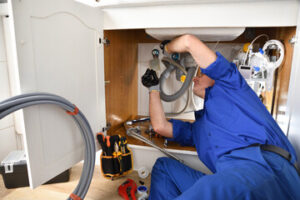
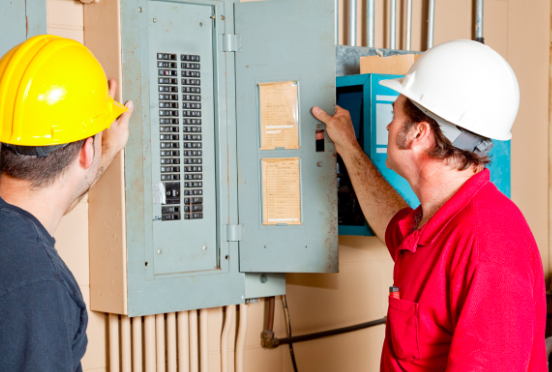
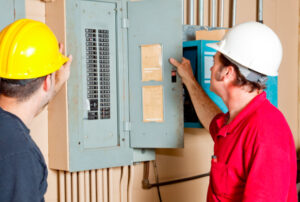 Electricity runs behind the scenes in our homes, providing us with one of life’s most important and taken-for-granted amenities. But, like everything else, electrical wiring can deteriorate over time.
Electricity runs behind the scenes in our homes, providing us with one of life’s most important and taken-for-granted amenities. But, like everything else, electrical wiring can deteriorate over time.